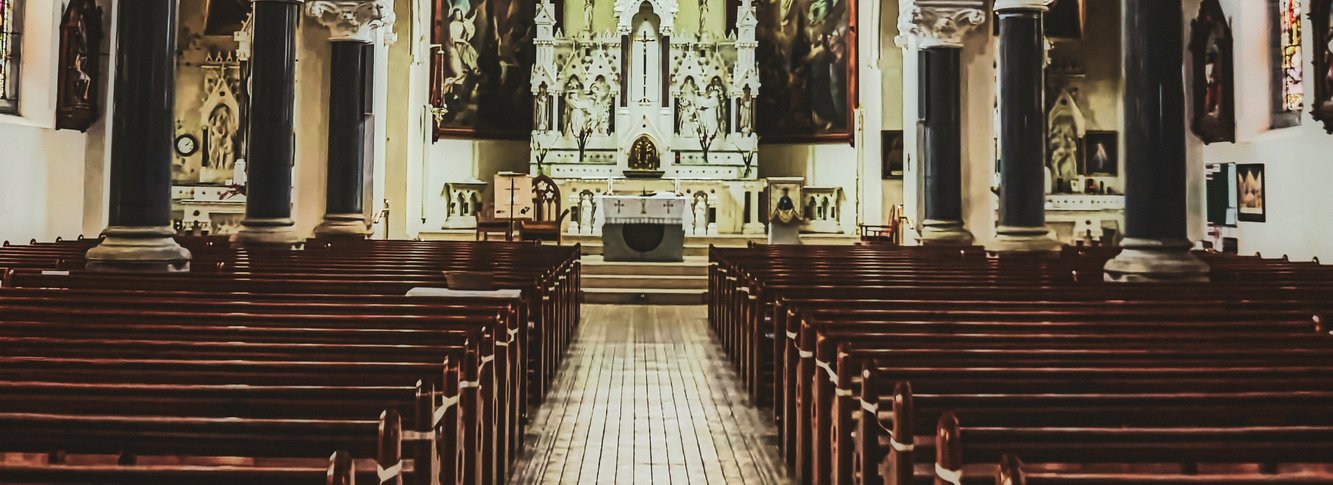| 6 mins read
The widely-viewed funeral of Queen Elizabeth in Westminster Abbey placed the Church of England at the centre of the national stage. Yet two months later, with the release of 2021 census data on the religious composition of England and Wales, the big headline has been the near equal decline in those ticking Christian and rise in those ticking ‘no religion’.
Removal or reform of religious institutions?
Christians are now less than half the population. Those with no religion make up more than a third, especially amongst white people. This is no great surprise. In response, there have been the familiar calls for disestablishment, the end of faith schools, and for the removal of the 26 Lords Spiritual gaining a renewed confidence. Keir Starmer has also announced that Labour would look to abolish the House of Lords, and with it the bishops. Humanists UK have even triumphantly claimed that England and Wales are no longer Christian countries as being the main thrust for these removals.
These arguments for removal are most often made in the name of equality; something not well represented by the perceived privilege of religion. But the question remains about what sort of equality we are talking about. When we consider this census result alongside other factors, they might rather point to reform rather than removal and to the multicultural and multi-faith, rather than triumphantly secular, character of the countries. The moral necessity of dismantling institutional aspects of public religion does not necessarily follow from the census findings. Indeed, it might equally justify an altogether more multicultural form of equality.
The relationship between the religious landscape and equality is not so clear cut. Behind the headlines, there was also a reaffirmation of a diverse and multi-religious society. Religious minorities have grown in number – not enough to offset the decline in Christianity, but enough to give us pause. Muslims rose from 4.9%-6.5%, Hindus from 1.5%-1.7%, Sikhs and ‘other religion’ both also rose slightly, and Jews remained stable. Moreover, there are pockets of the country where Christianity is actually growing, mainly due to the settlement of people from places such as West Africa and Poland.
We can appreciate the importance of this when we note that Muslims were at the forefront of the move which resulted in the religion question being added to the census in 2001. This was felt necessary to highlight their self-understanding and that religion formed a category of difference with effects for their socio-economic situation. Moreover, religious minorities do not seem to contest the role of the Church of England. Perhaps this is because it helps secure religion’s place in public life and bring minority religions into public dialogue. That is, the Church of England helps to foster a multicultural character of public engagement. And this has been sustained through state-religion partnerships.
Equalising upwards
This approach, rather than addressing equality through removal, or what we might call ‘equalising downwards’, instead points to an additive alternative, or ‘equalising upwards’. That is, asking first how we might reform in order to include minorities, and thereby also better reflect the multicultural and multi-faith character and institutional fabric of the country. Indeed, the expansion of faith school provision under New Labour in the late 1990s and early 2000s can be seen as an example of this approach. Rather than abolishing the Lords Spiritual, who at around 3% of Lords hardly wield a monopoly, we could ask how minority faiths can also be represented.
A further aspect of this is how we understand the so-called ‘nones’. The assumption that this represents that we are a more assertively secular country, and hence should dismantle notable aspects of public religion, has been called into question. Sociologists of religion, for instance, have pointed to how the ‘nones’ are ‘not straightforwardly secular’. A recent report by the think tank Theos has found that they split into roughly equal thirds and only one third is stridently secularist.
We have reason to question the calls for removal of religious institutions based on the census figures. What we might call for instead is greater recognition of Britain as a ‘community of communities’. This phrase was used in the report of the Commission on the Future of Multi-Ethnic Britain over two decades ago, and more recently invoked by King Charles III. The King also pledged to protect both the place of faith and of all faiths, not just Christianity, something which no doubt chimes with Rishi Sunak, the first UK Prime Minister to be a practising Hindu. The Coronation, in May 2023, and the public response to it will be the test of whether an Anglican establishment, from the monarch downwards, is incorporating a multicultural character or whether religious identity as such is to be publicly marginalised.





